Before we start things off, those of you who haven’t read my review of the Wolfgang Petersen’s original film should click here. You probably won’t be able to understand my stances here without a look at that one.
With that out of the way, it seems like five and a half hours can make all of the difference between a bad story and a great one. The television version of Das Boot plays with the original film’s tropes in a similar manner, but audiences will get a lot more out of it because we can actually see some of the things that the film passes off as an afterthought. In fact, there’s so much here that I’ll have to dispense with the usual format.
To keep things short and sweet, this series surpasses the original film in every conceivable way.
At Sea.
In an interesting twist, the submarine portions of Das Boot only take up about half of the eight-hour running time, but that’s a good thing. The writers cut out the boredom, added a lot more depth to the characters, and replaced the bizarre portions of the original film with an interesting dilemma and some truly dark moments.
All of the actors do a good job here, but some get meatier work than others. This part of the story largely focuses on the interplay between Kaleun Klaus Hoffman (Rick Okon), Korvettenkapitän Ulrich Wrangel (Stefan Konarske), and Samuel Greenwood, Jr. (Vincent Kartheiser). On one level, Okon’s Kaleun just wants to make sure that his men are safe and out of trouble, but Wrangel has other ideas that make perfect sense in the context of the war.
Think about it for a moment. This version of the story is set in 1942. At this point, the United States is in it to win it and the Kriegsmarine is on the verge of losing the Battle of the Atlantic, so why would Hoffman want to stay out of the fight when men and guns are streaming across the ocean? On the other hand, Hoffman almost certainly knows about this, so it makes sense that he’d want to keep everyone’s head down so that they can survive the war.
I don’t want to spoil much here, but I will say that the set-up makes all the difference when some jumbled-up moments from the original film pop up in the second half of the season.
On Land.
This version of Das Boot doesn’t waste too much time either. Instead of focusing on the boredom that might be present on a submarine, the series opens up the world around La Rochelle by adding plausible battles between the Gestapo and the French Resistance. In a similar manner to the journey at sea, the land portion of the story focuses most of its attention on the deeply personal struggle between Carla Monroe (Lizzy Caplan), Simone Strasser (Vicky Krieps), and Gestapo Kriminalrat Hagen Forster (Tom Wlaschiha).
At first, the audience might get the perception that the writers are presenting a standard Allies vs. Nazis storyline. However, the scripts twist our initial understanding and reveal some of the morally gray aspects of war. We all know about the horrific crimes of the Nazis and the good cause of the U.S. and the West, but does that mean that every person who fought for the Western Allies was a morally righteous guardian of liberty?
Not necessarily. I don’t want to spoil anything here, but you’ll see what I mean when you watch it.
On top of that tasty battle, the port sections help to fill out the backstory of the submariners in a meaningful way. At one point, we learn that Oberfunkmaat Frank Strasser (Leonard Schleicher) fell in love with a French woman (who happens to be a Jew) by the name of Nathalie (Clara Ponsot) and had a kid by her, and then we see that. It’s a nice touch that adds a lot of emotional weight to the story, especially when the brutality starts to hit home.
It’s A History Lover’s Dream. Mostly.
This iteration of Das Boot sets itself apart by pointing out aspects of history that the original film never could. There are a number of examples that illustrate this point, but I’d like to focus on three general points that’ll show you what the show gets right and wrong..
On the stranger side of things, one of the crew members of the U-612 mentions that he uses Pervitin tablets while on duty. For those of who might be confused as to why that matters, you might know the product under its more generalized name of methamphetamine. According to a number of sources, the Nazis encouraged the usage of the drug to keep their soldiers awake and alert during the war. Most stories don’t take the extra time to add little things like that, so the Das Boot television series deserves some added kudos for getting things right.
In a direct contrast to the original movie, the creative team went the extra mile to illustrate just how dangerous the Battle of the Atlantic actually was. On the small side of things, the depth charges in this show can and will sledgehammer any U-Boats in the immediate vicinity, which makes perfect sense in context. After all, why would the Allies waste what seems like two dozen depth charges when two or three pairs and some sonar sweeps will do the trick?
On the macro level, Fregattenkapitän Gluck’s (Rainer Bock) fretting about the strategic aspects of the war is an interesting sight, but this is where show gets some things wrong. At a certain point in the story, Gluck begins to wonder why many of the U-Boats are going missing. This implies that the show takes place in December, 1942 when the British cracked the four-rotor Enigma, but it looks like it was shot in the spring or summer. Oops.
Conclusion.
Das Boot was meant to be a series. Unlike the original film, the TV iteration has intriguing characters, a plot that will grip you from start to finish, and dilemmas that might make you question certain aspects of the world’s most destructive conflict. It doesn’t quite get everything right, but it does enough to ensure that it is reasonably accurate, unflinchingly brutal, and surprisingly interesting.
I don’t know about you, but that’s more than enough for me.
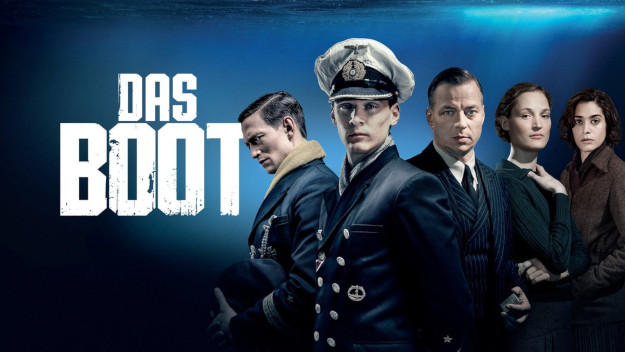
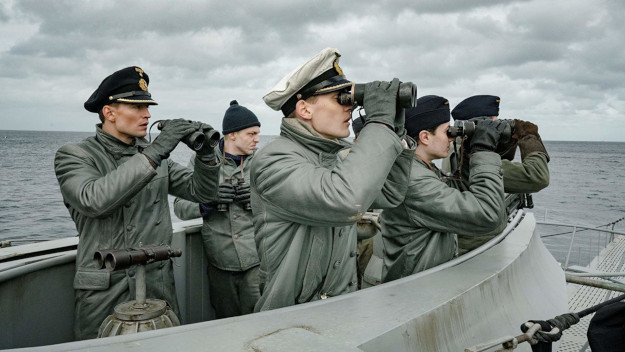
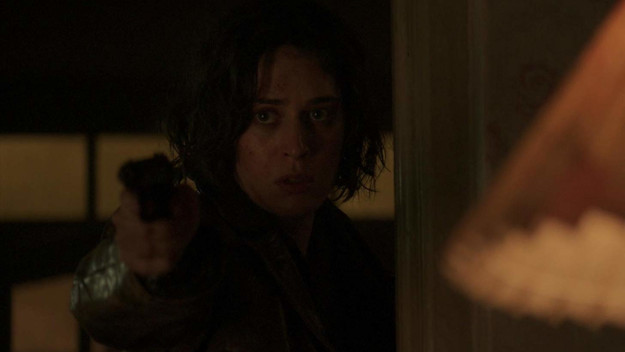
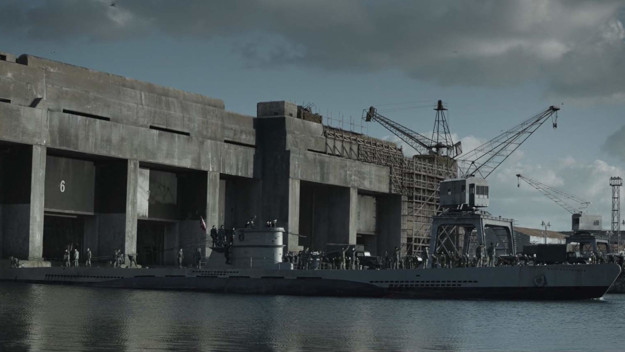
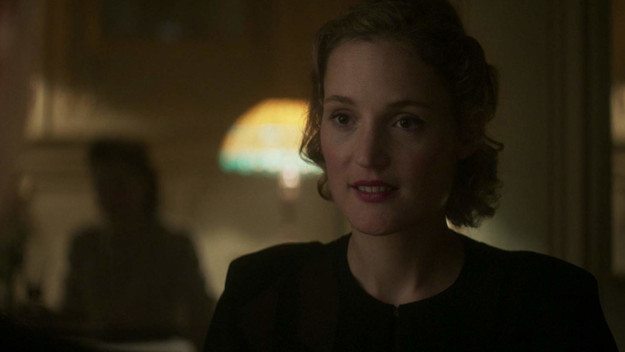
No Comments Yet